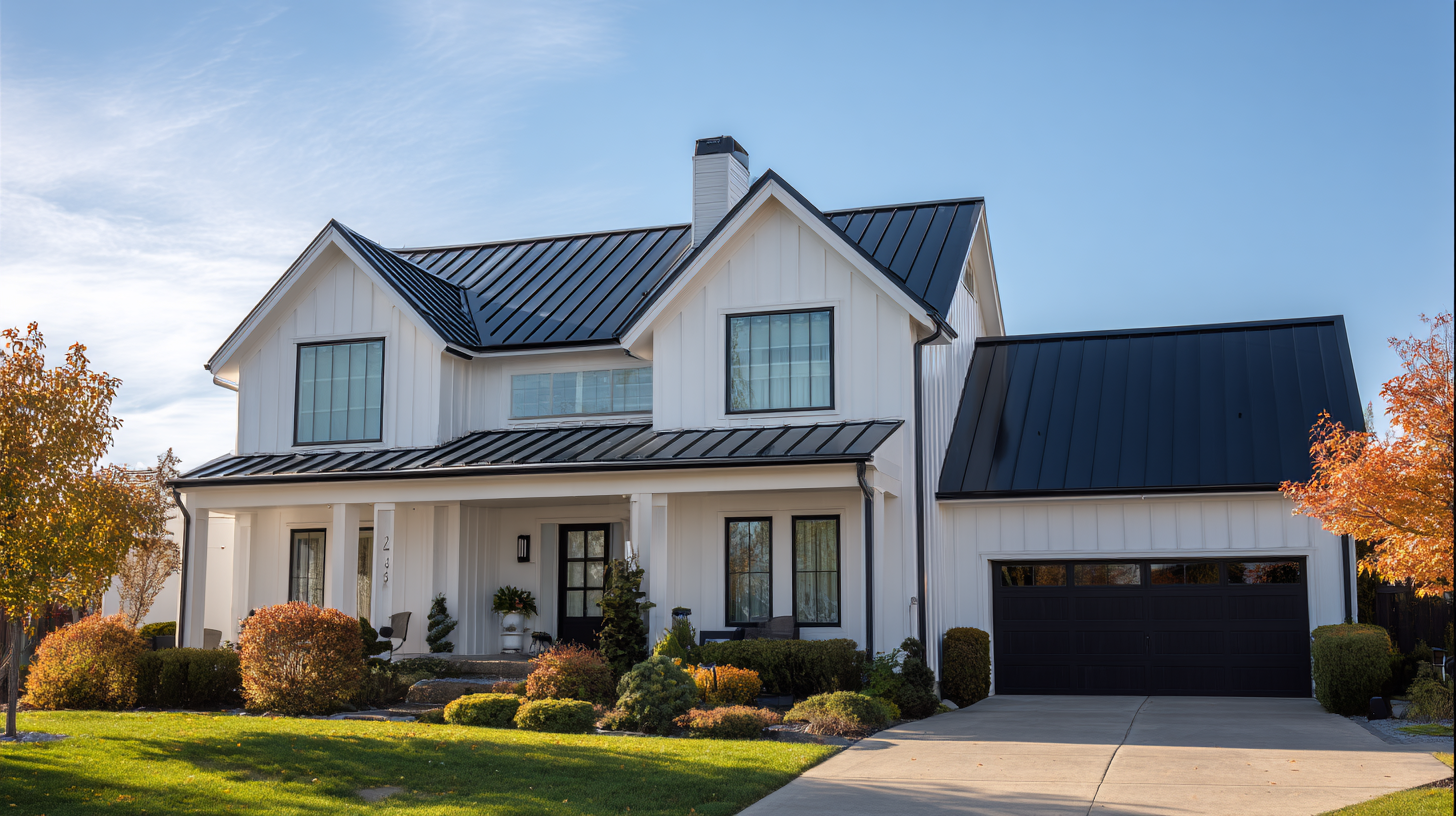
At American Quality Remodeling, we’ve spent over two decades helping New Jersey homeowners protect their most valuable asset – their homes. One of the most common questions we get is, “how long does a roof last in NJ?”
It’s a smart question. A roof isn’t just shingles and nails – it’s the first line of defense against heavy rain, coastal winds, snow, and the blazing summer sun. The truth is, roof lifespan varies depending on the material, quality of installation, and the unique challenges of New Jersey’s weather.
While national averages can provide a baseline, New Jersey has its own rules. The state’s four-season climate and diverse geography – from the humid shorelines to the snow-heavy northern hills – make a big difference in how long your roof actually lasts. Let’s take a closer look at what you can realistically expect.
Roof Average Life by Material Type
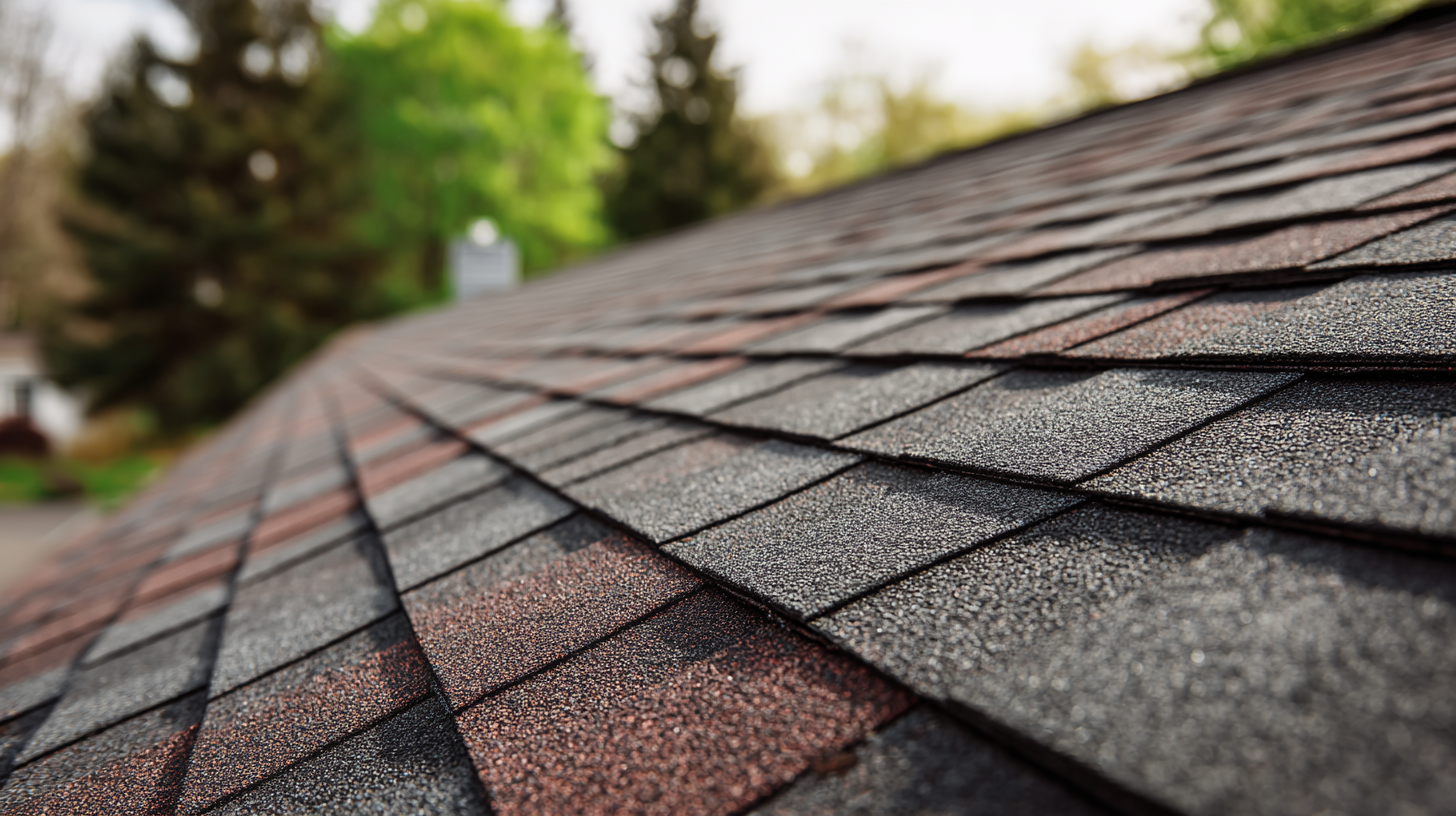
When homeowners ask about the roof’s average life, the answer always starts with the material. The type of roofing you have (or plan to install) is the biggest factor in how long it will protect your home.
At American Quality Remodeling, we work with a range of roofing materials, each offering its own balance of cost, appearance, and durability. Here’s how the most common options perform in New Jersey’s environment.
Asphalt Shingle Roofs in New Jersey
Asphalt shingles are the most popular choice in our state – and for good reason. They’re affordable, attractive, and come in a wide variety of colors and textures. But how long do they really last?
In New Jersey’s climate, the average lifespan of a standard three-tab asphalt roof is 15 to 20 years, while premium or architectural shingles can last 25 to 30 years. That’s assuming proper installation, ventilation, and regular maintenance.
What often shortens their lifespan isn’t the material itself, but the weather. Rapid temperature swings, coastal humidity, and winter ice can cause shingles to age faster than expected. That’s why at American Quality Remodeling, we always use top-rated shingles designed for high wind resistance and heat endurance – built to survive real New Jersey conditions, not just lab tests.
If you’re wondering whether metal roofs are worth the investment, the answer is a confident yes. Metal roofing can last 40 to 70 years, depending on the type of metal and coating used.
Steel and aluminum roofs are particularly well-suited for New Jersey’s weather extremes. They resist corrosion, shed snow easily, and reflect sunlight during hot summers, helping keep your home energy efficient.
A properly installed metal roof doesn’t just last longer – it also demands less maintenance over time. For many homeowners near the shore, this durability alone makes metal roofing a smart long-term choice.
At American Quality Remodeling, we’ve seen metal roofs outlast their warranties by decades when maintained correctly. That kind of reliability brings peace of mind, especially in areas where wind and salt air are constant challenges.
Architectural Shingles vs Three-Tab Shingles
The difference between these two types of asphalt roofing goes far beyond appearance. Three-tab shingles are the classic, flat design you see on many older homes. They’re economical but thinner and more prone to damage from wind and weather.
Architectural shingles, on the other hand, are thicker, layered, and designed for enhanced durability. They typically last 25 to 30 years, compared to 15 to 20 years for three-tab options. They also hold up better to New Jersey’s intense seasonal shifts – resisting curling, cracking, and storm damage far better.
For homeowners looking for the best value over time, architectural shingles often make the most sense. They add texture, depth, and curb appeal to your roof while lasting nearly a decade longer on average.
Other Roofing Materials and Their Longevity
While asphalt and metal dominate the residential market, there are other materials that appear on New Jersey homes, particularly in higher-end or historic neighborhoods.
- Slate roofs – can last 75 to 100 years or more, but they’re heavy and expensive.
- Cedar shake roofing – typically lasts 25 to 35 years, though it requires more upkeep to prevent mold and rot.
- Flat roofing systems (EPDM, TPO, or modified bitumen) – commonly used on commercial buildings, these last 20 to 30 years with proper maintenance.
Each of these materials offers unique benefits, but they also demand specific expertise during installation and care. That’s why partnering with a certified, experienced contractor is essential to achieve the full lifespan your roof promises.
Why New Jersey Weather Affects Your Roof’s Lifespan
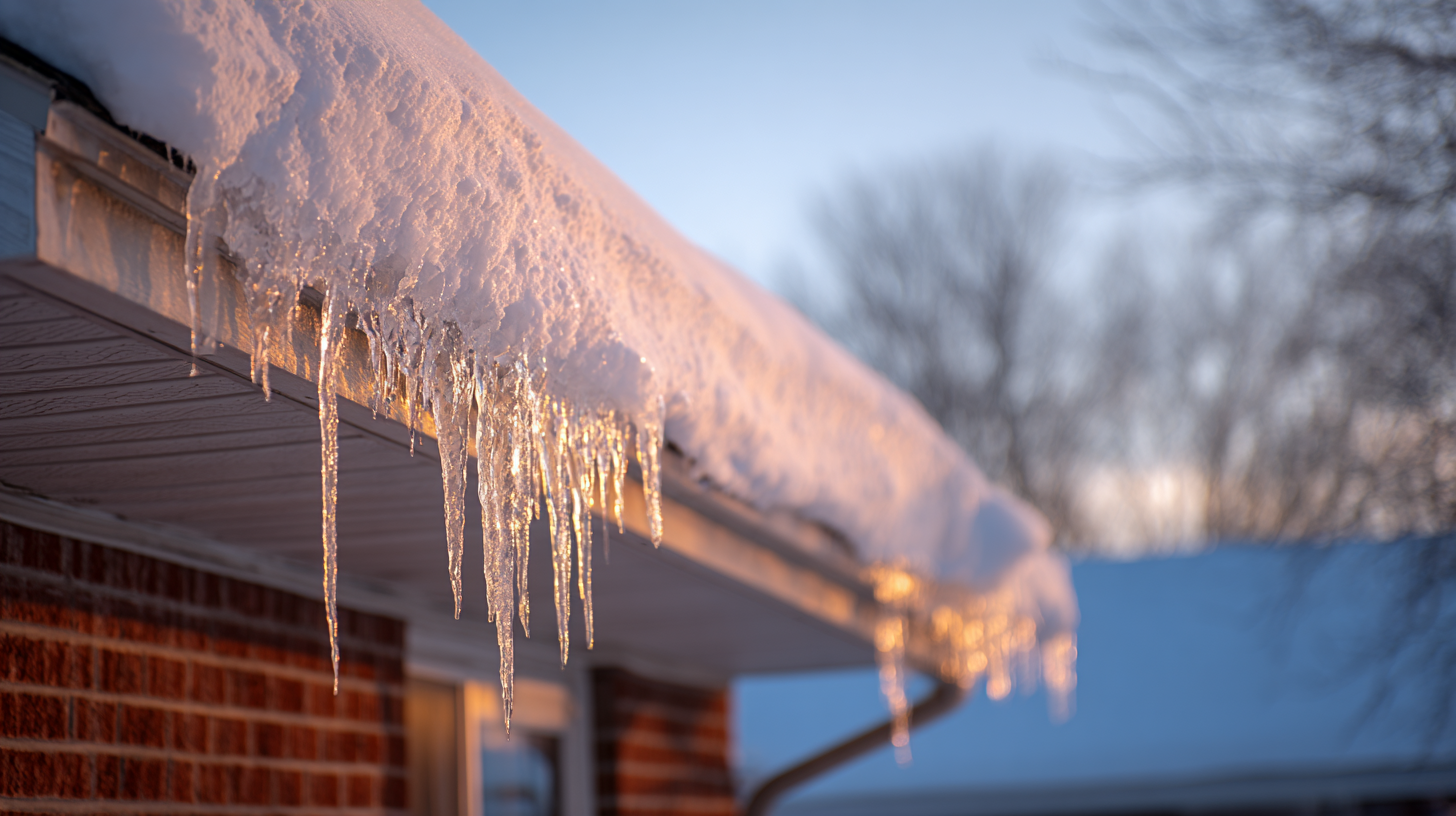
When people ask how long does a roof lasts on average, they’re often thinking in national terms. But New Jersey’s climate is far from average. The combination of four distinct seasons, coastal humidity, and northern snowfall creates a perfect storm of challenges for every roof.
Let’s break down exactly how our state’s weather influences the life expectancy of your roofing system.
Four-Season Climate Impact
Unlike regions with mild, consistent weather, New Jersey homes experience the full range – from freezing winters to hot, humid summers. Those temperature swings cause roofing materials to expand and contract repeatedly. Over time, that movement weakens seals, loosens fasteners, and creates small openings where water can enter.
Even the best shingles need to breathe. That’s why our installation process focuses heavily on ventilation and attic insulation. It keeps your roof temperature balanced and reduces stress caused by thermal shock – one of the biggest silent killers of roof longevity.
Coastal Salt Air and Humidity
If you live near the Jersey Shore, salt air is your roof’s constant companion. While the ocean breeze might feel refreshing, it’s not so kind to roofing materials. Salt accelerates corrosion, especially on exposed metal fasteners or flashing.
Humidity also creates a breeding ground for algae and mildew, which can discolor shingles and degrade asphalt over time. That’s why we recommend algae-resistant shingles and protective coatings for coastal homes.
At American Quality Remodeling, we’ve seen how a little preventive care can make a huge difference. With the right materials and annual inspections, even shore homes can enjoy decades of reliable performance.
Winter Snow Load and Ice Damage
New Jersey winters can be unpredictable. Some years bring light snow and mild cold, others bury homes under feet of heavy, wet snow. That extra weight puts enormous stress on your roof’s structure – especially older ones.
When snow melts and refreezes along roof edges, it can form ice dams. These dams prevent proper drainage, forcing melting snow to back up under shingles. Over time, this can lead to leaks, rotted decking, and even ceiling stains inside your home.
That’s why attic insulation and ventilation are critical. They help maintain a consistent roof temperature, reducing the chance of ice forming at the eaves. At American Quality Remodeling, we also install high-quality underlayment and water shields as an added layer of defense – because prevention is always cheaper than repair.
Summer Heat and UV Exposure
If winter weakens your roof from below, summer attacks it from above. UV radiation from the sun slowly breaks down asphalt binders, causing shingles to dry out and lose flexibility.
In South and Central Jersey, where humidity and heat often peak together, roofs can age faster than expected. High temperatures make materials expand, while sudden summer storms create pressure from strong winds and rain.
Reflective roofing materials and light-colored shingles can help reduce surface heat, extending roof lifespan. Metal roofs naturally excel here, reflecting solar energy instead of absorbing it. For asphalt roofing, choosing a high-quality shingle rated for UV protection is essential if you want your roof to last its full lifespan.
How Long Does a Roof Last on Average Compared to NJ Homes
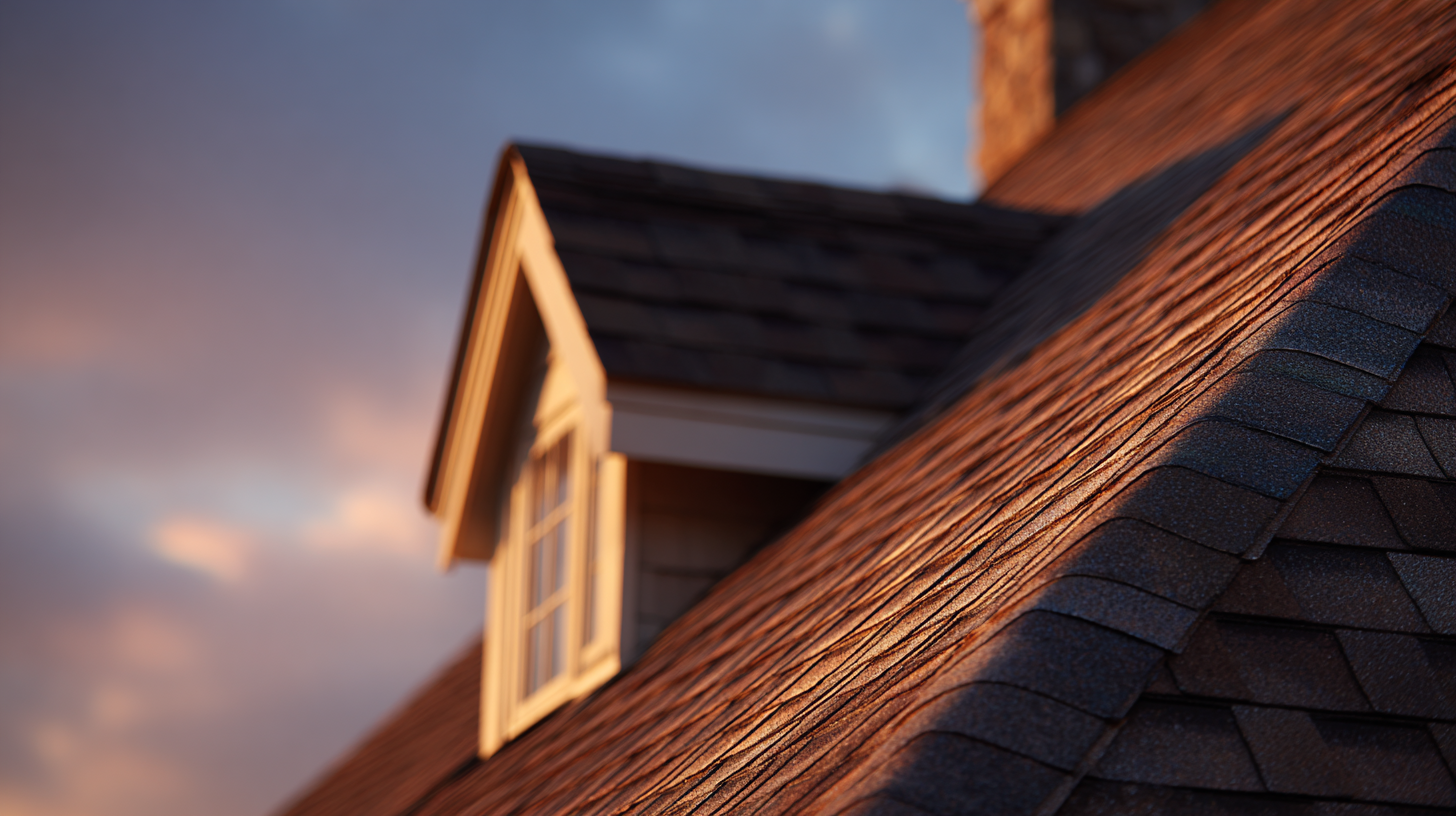
So, how long does a roof last on average in the United States? Nationally, most asphalt shingle roofs last about 20 to 25 years. But in New Jersey, where weather swings and moisture are constant, it’s closer to 17 to 22 years.
That difference may not sound big, but over time it adds up – especially for homeowners along the coast or in areas with poor drainage. The average roof lifespan in NJ simply reflects reality: tough conditions mean your roof works harder every single season.
Let’s take a closer look at how those averages shift depending on location.
National Averages vs Local Reality
Across the U.S., roofing lifespans are based on moderate climates – not regions with salt air, ice storms, or hurricane remnants. When manufacturers list “30-year shingles,” that’s often under ideal lab-tested conditions.
In New Jersey, those same shingles might last 25 years at best unless they’re properly maintained. That’s why we always remind homeowners to schedule annual roof inspections. Even a small repair – sealing flashing, replacing a few cracked shingles – can add years to your roof’s life.
Our local experience gives us a realistic understanding of how long roofs actually last here, not just what’s printed on the product label.
Regional Differences Within New Jersey
The lifespan of your roof can vary dramatically depending on where you live in the Garden State.
- Northern New Jersey – Colder winters and more snow mean more freeze-thaw stress and ice dam risk. Roofs here typically last slightly less – around 15 to 20 years for asphalt shingles.
- Central New Jersey – Balanced seasons make this region gentler on roofs. Expect 18 to 25 years, depending on materials.
- Southern and Coastal Areas – Humidity, salt air, and wind exposure can shorten shingle life to 15-18 years unless you use high-performance or algae-resistant materials.
This is why American Quality Remodeling tailors every roofing project to the local environment. What works in Princeton may not be right for Cape May – and we design accordingly.
Why Shore Homes Face Different Challenges
Shoreline homes experience some of the harshest conditions in the state. Constant salt exposure corrodes metal flashing, gutters, and fasteners. Strong winds and airborne sand also wear down shingles faster.
The combination of moisture and sunlight is particularly tough. Mold, salt crystals, and UV radiation break down roofing materials faster than in inland areas.
That’s why for coastal clients, we often recommend metal or architectural shingles with marine-grade coatings. They resist corrosion and hold color longer, giving you a better return on investment.
Even with these upgrades, maintenance matters. A yearly roof cleaning and inspection can extend the lifespan of a shingle home roof by several years.
Signs Your Roof Is Reaching the End of Its Life
No roof lasts forever, but most start giving warning signs long before a serious failure happens. The key is noticing them early enough to take action before water damage or structural problems appear.
You might spot curling or cracked shingles – that’s often a result of heat fatigue and natural aging. If you notice a buildup of small granules in your gutters, that means your shingles are losing their protective coating. Dark streaks or patches of algae on the surface indicate trapped moisture and reduced ventilation. Sometimes you can even feel soft spots or see subtle sagging in certain areas of the roof, which usually points to rotted decking underneath.
Frequent leaks or water stains inside your home are another clear red flag. When several of these symptoms show up together, especially if your roof is more than twenty years old, it’s time to start planning a replacement.
At American Quality Remodeling, we don’t believe in quick patches that only hide the problem. Our goal is to help you make confident, informed decisions about the right solution – whether it’s targeted repair work or a full roof upgrade that will keep your home safe against New Jersey’s demanding climate for decades to come.
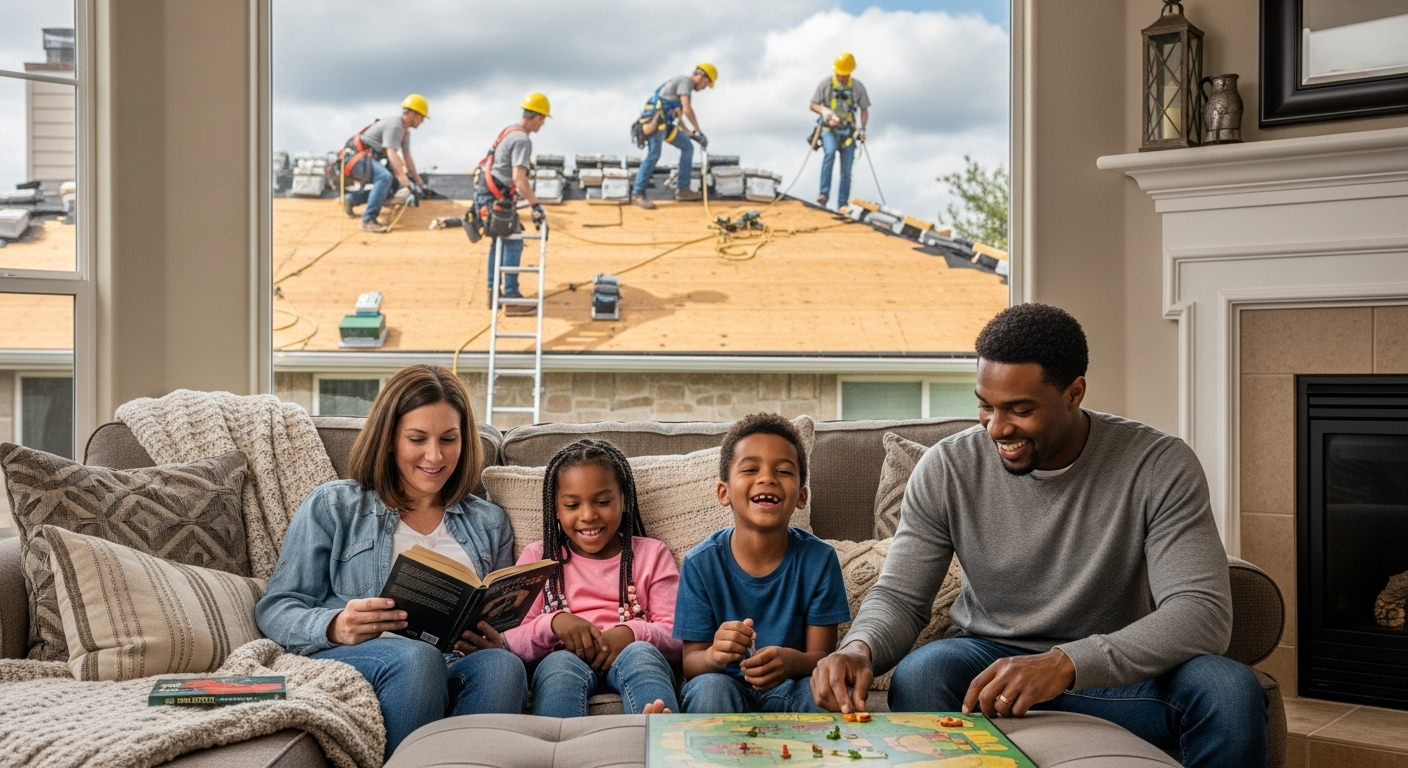
 10 min read Oct 27, 2025
10 min read Oct 27, 2025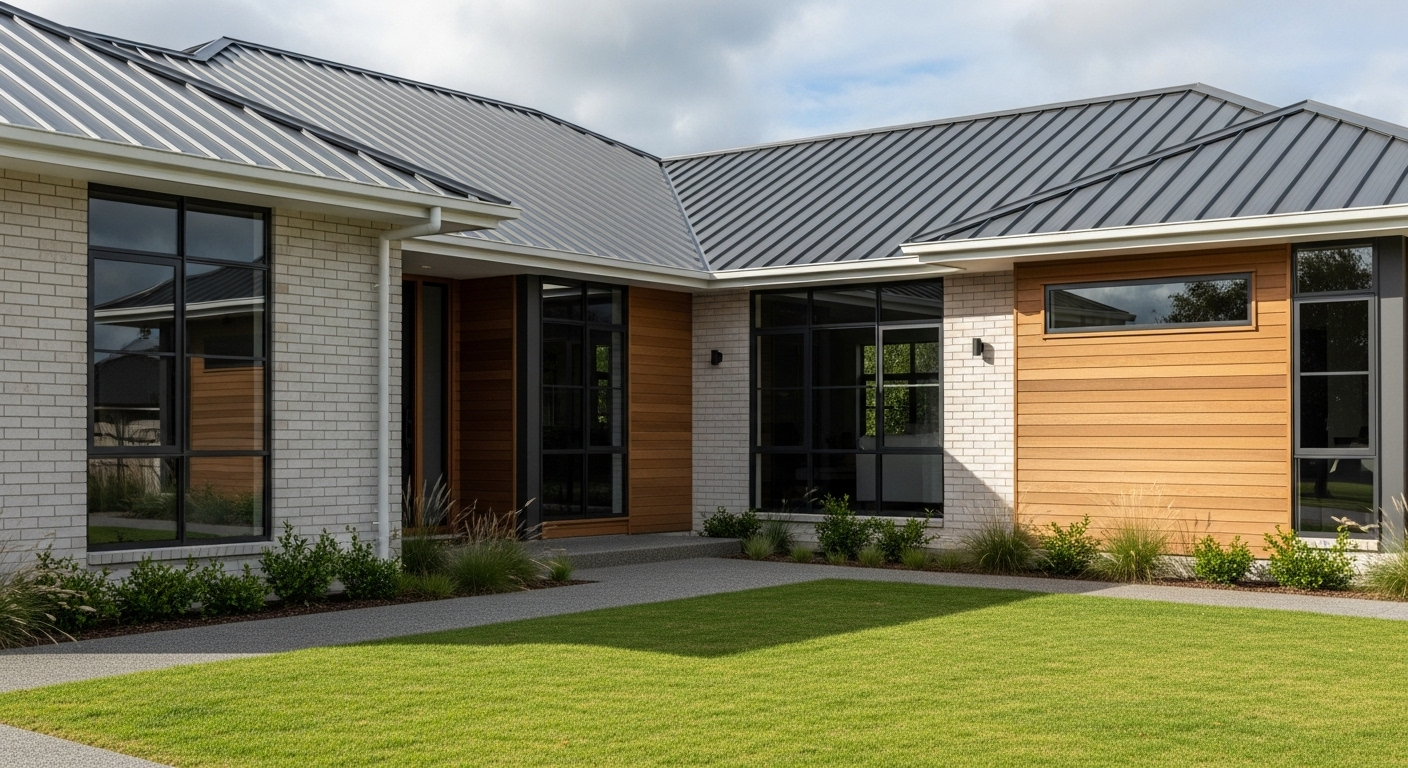 10 min read Oct 17, 2025
10 min read Oct 17, 2025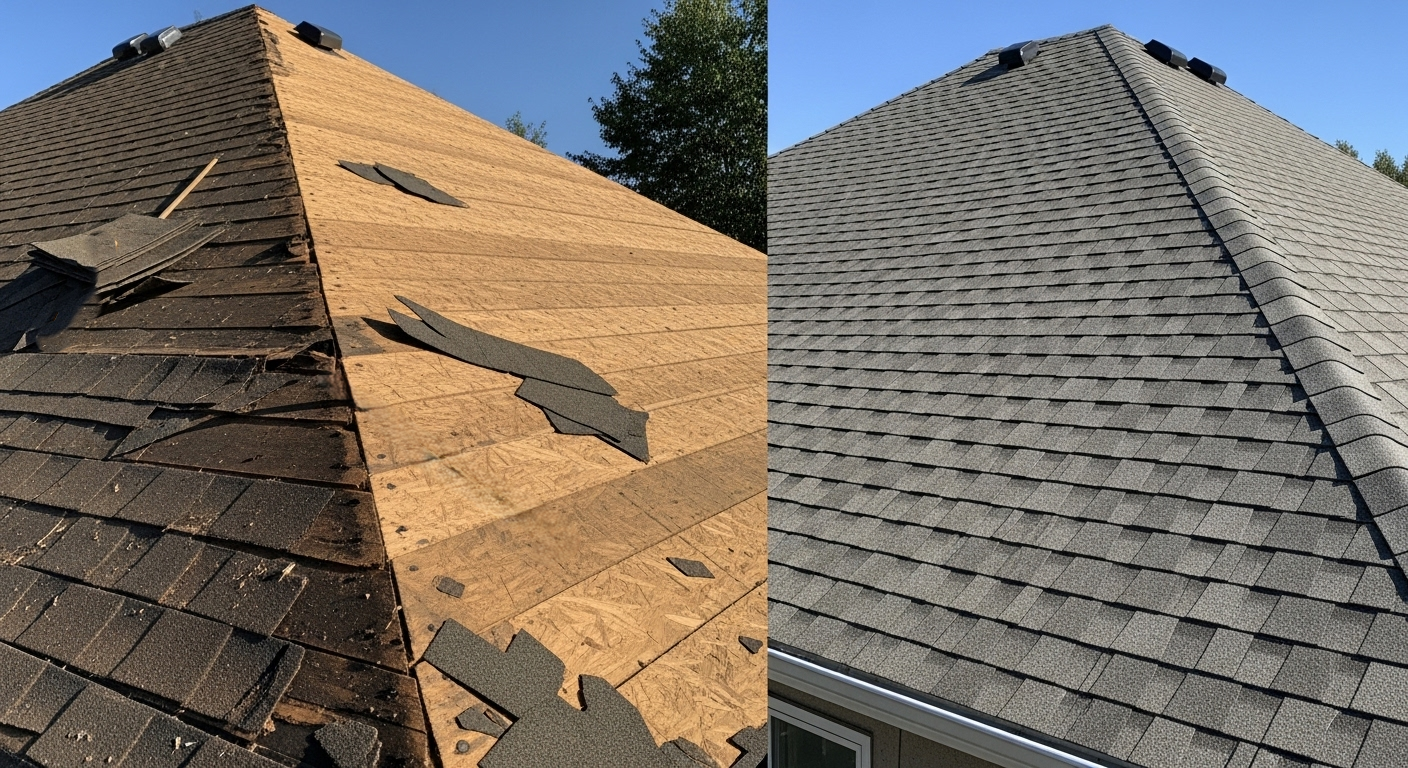 10 min read Oct 15, 2025
10 min read Oct 15, 2025






